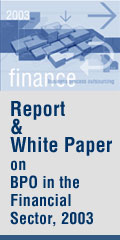|


|
IMF Approves Major Expansion of Fundís Borrowing Arrangements to Boost Resources for Crisis Resolution
April 12, 2010:
The Executive Board of the International Monetary Fund (IMF) today approved a ten-fold expansion of the Fundís New Arrangements to Borrow (NAB) and the transformation of the Fundís premier standing credit arrangement into a more flexible and effective tool of crisis management. The NAB will be increased by SDR 333.5 billion (about US$500 billion) to SDR 367.5 billion (about US$550 billion), representing a major increase in the resources available for the Fundís lending to its members.
This responds to the call by the leaders of the Group of 20 (G-20) economies, endorsed by the International Monetary and Financial Committee (IMFC), to increase the financing available to the Fund, through an expanded and more flexible NAB increased by up to US$500 billion. Thirteen new participants, including a number of major emerging market economies, have indicated their willingness to join 26 current participants in the NAB. The decision today follows the agreement reached by current and prospective participants at their meeting in Washington in November 2009 on the key elements of an expanded and more flexible NAB.
ďThe expansion and enlargement of the NAB borrowing arrangements provides a very strong multilateral foundation for the Fundís efforts in crisis prevention and resolution, as an essential back-stop to the Fundís quota resources. This will help ensure that the Fund has access to adequate resources to help members that are vulnerable to financial crises,Ē IMF Managing Director Dominique Strauss-Kahn said.
The NAB is a standing set of credit arrangements under which participants commit resources to IMF lending when these are needed to supplement quota resources. The expanded NAB will become operational when it receives formal acceptances from the required proportion of current and potential participants, which will require legislative backing in some cases.1
ďThe expansion of the NAB will make an important contribution to global financial stability, but it is not a substitute for a general increase in the Fundís quota resources. The Fund is, and shall remain, a quota-based institution. It is important now that member countries rapidly take the necessary steps to make the increased resources available,Ē Mr. Strauss-Kahn underscored.
IMF signs US$10 billion Agreement with RBI
Managing Financial Innovation in Emerging Markets
Economic Recovery Linked to Global Stability & Peace
IMF's borrowing arrangement up to US$600 billion
Policymakers globally must continue collaboration
Maintain Fiscal Support, but Devise Credible Exit Strategies
Global FIs Sign Agreement to Facilitate Lending Cooperation
Initiatives to clean up financial systems
3 principles to reshape the global economy
IMF welcomes actions by G20 to sustain global recovery
G20 Leaders endorse the FSBís Charter
IMF Signs Borrowing Agreement with Deutsche Bundesbank
Vast financial services expansion potential in emerging markets
IMF MD remains cautious about global economic recovery
IMF announces increased in financial support to poor countries
IMF implements major lending policy improvements
Medium-term fiscal consolidation a priority for India, says IMF
IMF Welcomes Comprehensive European Response to Financial Crisis
IMF sees heightened risks to global financial stability
CLICK FOR MORE FEATURES & STORIES


 
|
|
|


